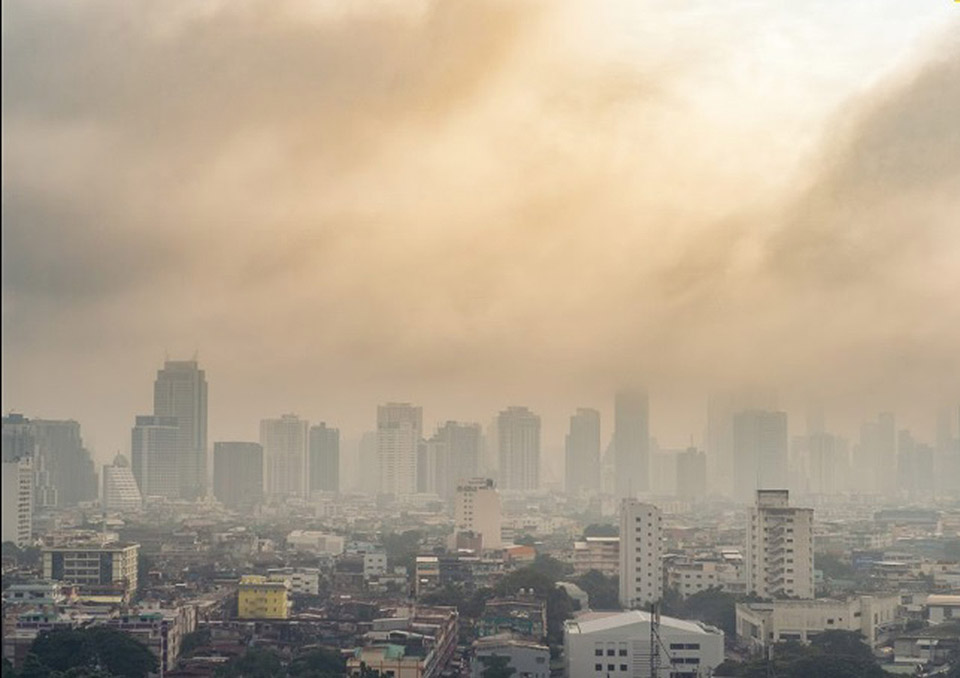
Floods are occurring in some areas of the South whereas upper Thailand is now experiencing cool weather. The prime minister is encouraging people to take care of their health amid dropping temperatures. Meanwhile, relevant agencies have been told to closely monitor the PM 2.5 situation that is expected to intensify as the cold season progresses.
Prime Minister Gen. Prayut Chan-o-cha is closely following up on the PM 2.5 airborne dust situation, which usually worsens in the cold season. For Bangkok and periphery provinces, airborne particulate matter readings at the year’s end may exceed health standards. Authorities said the primary contributor of PM 2.5 in Bangkok is exhaust from motor vehicles, especially those with diesel engines. The Bangkok Metropolitan Administration is collaborating with the Department of Pollution Control, the Department of Disease Control, the Department of Health, the Meteorological Department, the Land Transport Department, and the Traffic Police to address the airborne dust problem in the capital city. 70 permanent PM 2.5 measuring stations have been set up in Bangkok at high-traffic areas, residential areas, and public parks. The frequency of inspections on vehicles emitting black exhaust has been increased, and air quality analysis vehicles are being dispatched to various spots to take readings of the airborne dust level.
For provinces outside the Greater Bangkok area, authorities have cited open-air burning and smoke haze swept in from neighboring countries as the primary contributors to airborne pollution. The Ministry of Natural Resources and Environment is implementing a plan to more efficiently address the dust problem in the provinces. (NNT)
 |
 |
 |





